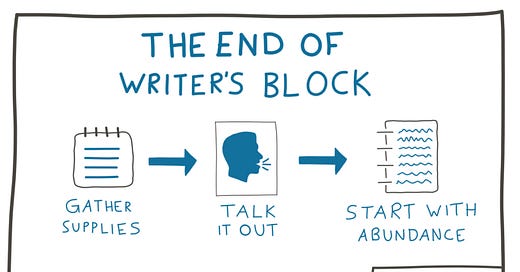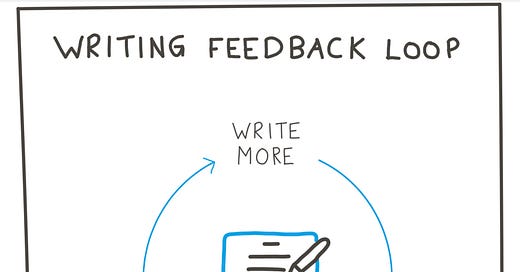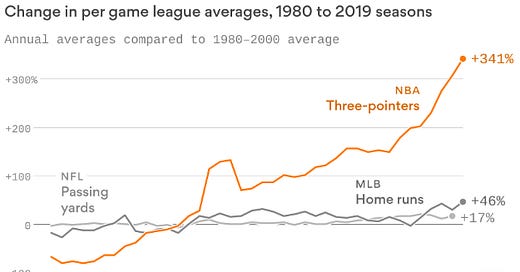

Discover more from Monday Musings by David Perell

People love to think of themselves as rational creatures. I have news for you… We’re not.
We have a bias for solving problems with stuff, such as gadgets, technology, engineering, products, or legislation. But sometimes problem solving can happen with a change in psychology. And the best part is psychological changes are free.
We like to think our choices are driven by rationality, when in reality we justify compulsive decisions in hindsight. We like to think advertising only influences other people, when in reality advertising influences your behavior too.
Hate to break it to you but humans are weird, strange and irrational. That’s okay. But we get in trouble when we ignore that fact. I’ll be the first to admit it... I do irrational things all the time.
Sometimes, if I need to write something professional, I’ll dress up and throw on a suit and tie. The feeling of sophistication creates focus. My friends are irrational too. Over the weekend, I spoke with a fashion designer who unlocks creativity by radically transforming his hair. Oh, and the greats are also irrational. David Bowie used to change his clothes and become a whole different person, which was the secret to his creativity.
News flash: People aren’t machines. Pure efficiency is over-rated. As I’ve written before, humans decision making is not driven by perfect rationality, perfect trust, and perfect information. Classical economic theory is an incomplete guide to human behavior.
This is why marketing is so powerful. In a world where everybody is focusing on data and outdated, incomplete metrics, competitive edge is found in precisely the places we cannot measure.
As a marketer, it’s my job to help clients identify and unlock this latent potential. And when we do, it’s beautiful. Hidden value is everywhere, waiting for us to identify it. It’s in our families, our friendships, our governments, our commutes, and our businesses.
Great products with poor messaging are like a Michelin star restaurant that smells like sewage. Sure, the food might be delicious. But nobody’s ever going to eat there. And if they do, it’ll be a terrible experience.
Some low cost ideas for massive, compounding impact:
How do we use powerful imagery to fuel ambition and spark our imagination?
Can we increase the rate of innovation by raising the status of scientists and inventors?
How can we improve customer satisfaction by telling better stories about our product and why it exists?
Amazingly, we can unlock massive amounts of value by changing the stories we tell. But as a society, we focus too much on what looks good on a spreadsheet and not enough on the quirks of human psychology.
Note: Credit to Rory Sutherland for inspiring these ideas.
Fresh Ideas
The Algorithmic Trap
A couple months ago, I published an article called The Algorithmic Trap. In just two months, more than 10,000 people have read it.
The article is about life in the internet age. Digital, algorithmic feeds such as Yelp and Instagram are re-shaping geography and influencing our actions. The more I travel, the less I depend on algorithms. Especially in cities, I find myself shifting adding friction back into my travel experience — shifting away from digital recommendations and back towards human ones.
It’s pretty crazy… Once you see The Algorithmic Trap once, you’ll start seeing it everywhere.

Coolest Things I Learned This Week
David Foster Wallace: Everybody Worships
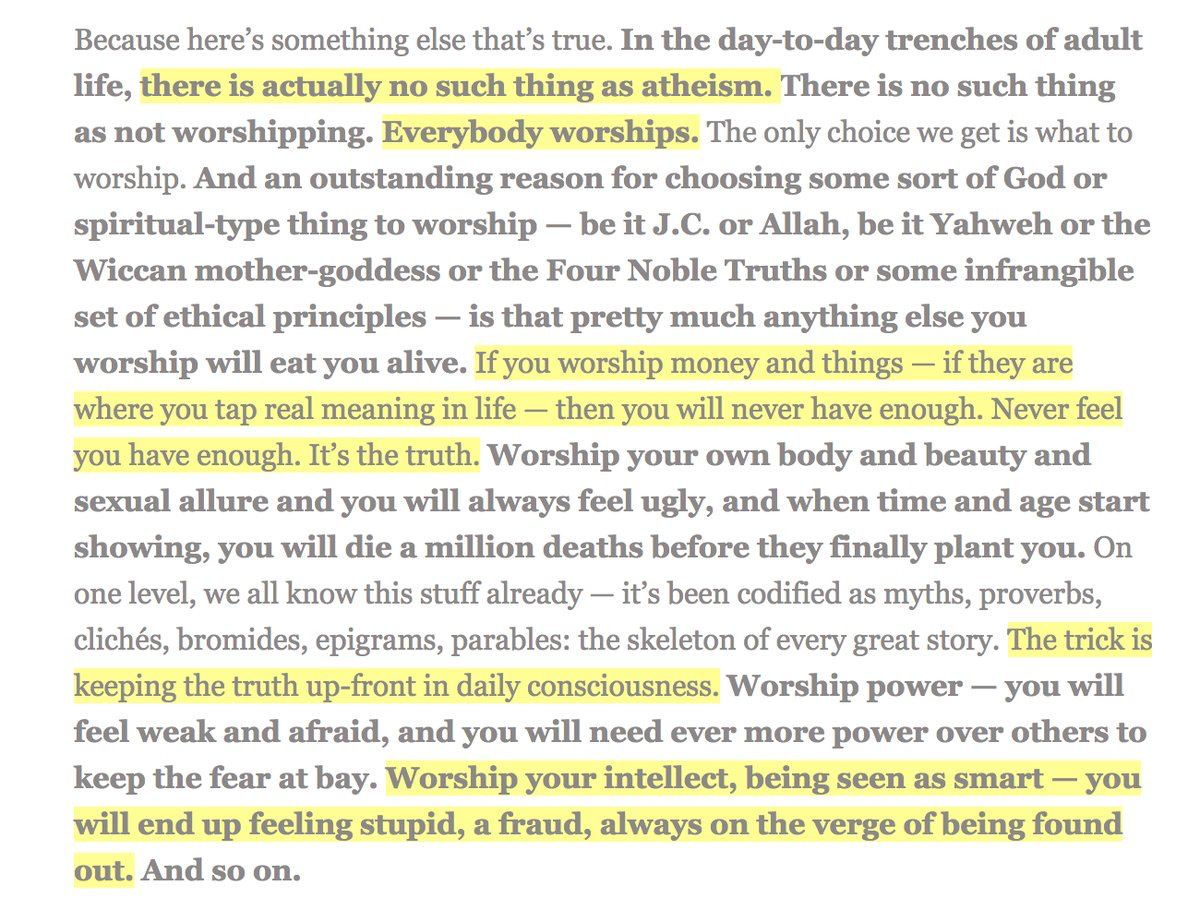
The Television Sports Audience is Aging
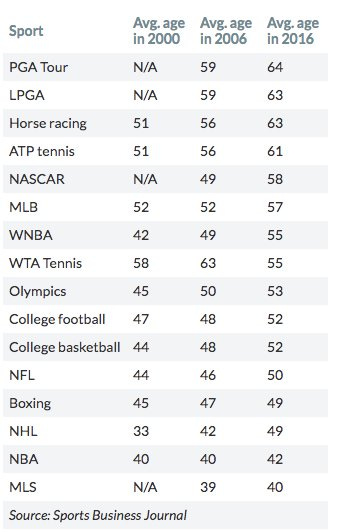
The Problem with Humanity
“The real problem with humanity is the following: We have paleolithic emotions, medieval institutions, and god-like technology. And it is terrifically dangerous.”
— E. O. Wilson
How Netflix Creates Stars
Right now, as a society, we know how to value social capital but not financial capital. However, due to the internet, social capital is increasingly important. The positive benefits of strong social capital are only increasing.
As I’ve written before, brand building is an essential skill for the digital age and when I speak with digital natives they intuitively understand this.
Netflix argues that it makes stars. This was a fascinating line Neflix’s recent earnings call:
"We’re also thrilled that Netflix has been a launching pad for a new generation of global stars like Millie Bobby Brown, Jacob Elordi, Noah Centineo and Gaten Matarazzo. When our service helps our talent develop huge fan bases (from small followings to over 10 million Instagram followers), we can attract the best talent in the world. This explosive growth in popularity is a good indicator that our shows and stars are breaking out around the planet.”
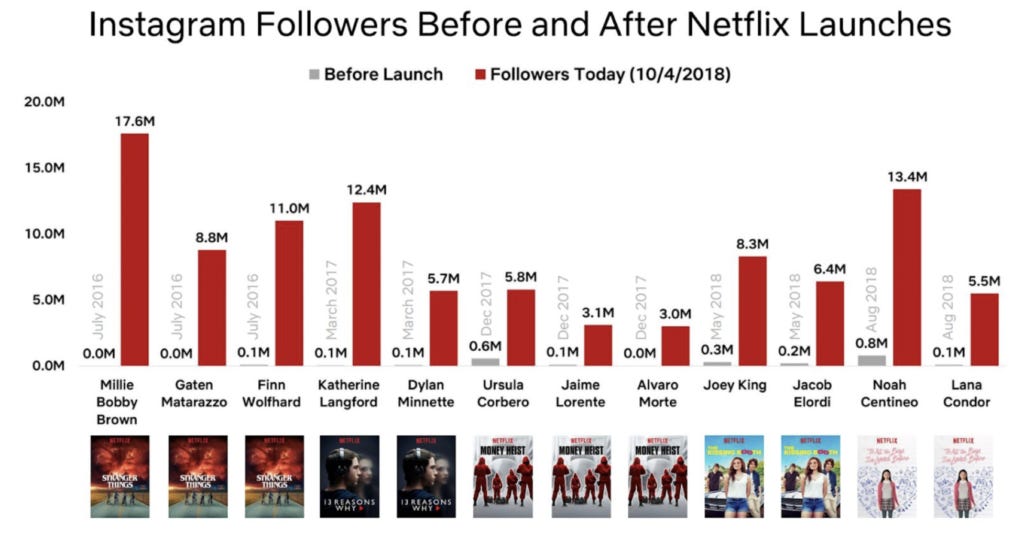
The Tyranny of the Spreadsheet
From Rory Sutherland:
“The most dangerous technology of recent years has spread without a voice raised against it. I am talking about the spreadsheet. What the spreadsheet has done is to create in organisations and governments an over-reliance on numbers (by no means always meaningful or even accurate) with the result that often spurious numerical targets, metrics or values invariably override any conflicting human judgment.
This has given rise to what a colleague of mine, Anthony Tasgal, calls “The Arithmocracy”: a powerful left-brained administrative caste which attaches importance only to things which can be expressed in numerical terms or on a chart.
I object to the spreadsheet precisely because of the pseudo-science involved, and the way numbers create a semblance of mathematical rigour which lends some measures or extrapolations an influence they don’t deserve. Einstein posted a sign in his office at Princeton which read, “Not everything that counts can be counted, and not everything that can be counted counts.” In spreadsheet-land everyone knows educational standards are falling — but “that’s fine because the pass rate is going up.”
Bankers have instinctively known for years that something was wrong — but 1,000 screens twinkling with reassuring numbers have vetoed anyone from acting on their instincts. We worry endlessly about how technology might give rein to our baser urges but give no thought at all to the dangers of excessive logic. Yet the Holocaust and the Soviet famine were both the product of meticulous government officials in dutiful pursuit of numerical targets. Italians, by and large, don’t go in for atrocities. It’s not mass hysteria that really frightens me, it’s mass rationality.”
Did you know about Isochrone maps?
Isochrone maps show how long it takes to travel from one place to another.
This first map displays travel times from a given spot to the nearest city:
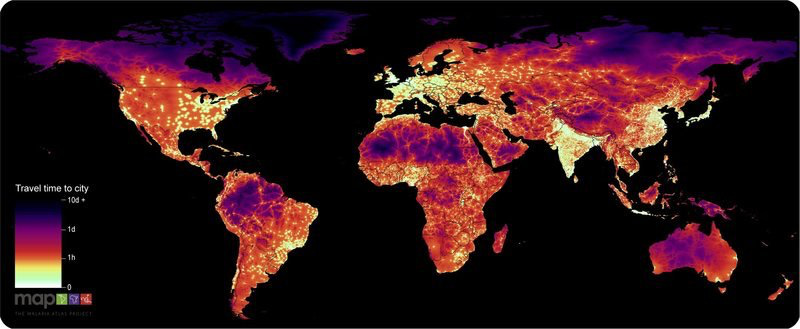
This map shows travel times from London in 1989:
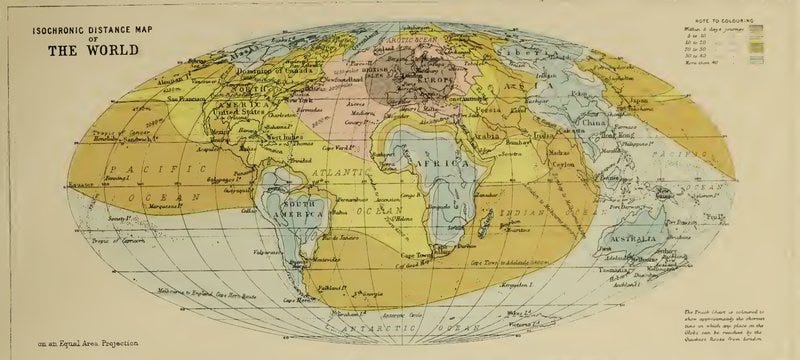
A map of Melbourne tram times from 1910 - 1922:
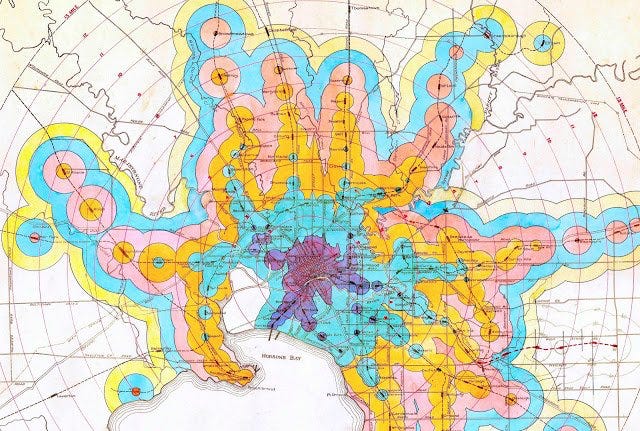
Travel times to Paris in 1882:
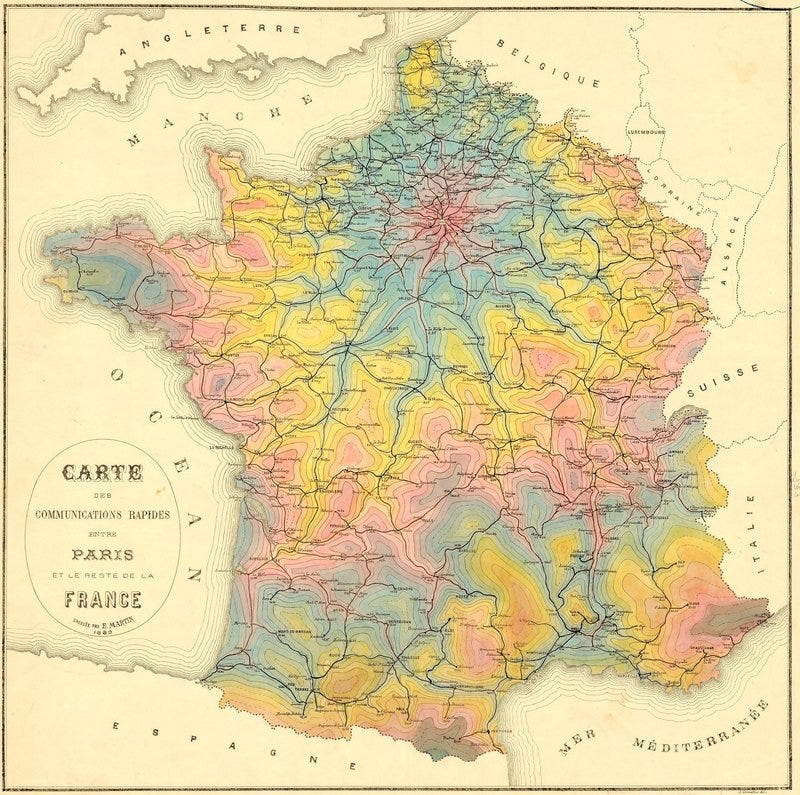
Thanks to Devon Zuegel for sharing these maps.
Photo of the Week

I spent the week with a friend in chilly Columbia, Missouri. Now, I’m back in New York where it’s officially scarf and peacoat season. The frigid temperatures reminded me of this ski lift selfie.
A couple years ago, we took a family trip to Wyoming where we raced down the slopes in the shadows of Grand Teton National Park, underneath some beautiful lilac-painted sunsets.
Have a great week and don’t forget to be a little irrational,
David Perell
Subscribe to Monday Musings by David Perell
A Celebration of Learning and Curiosity. Written by David Perell



